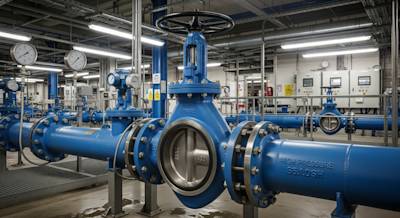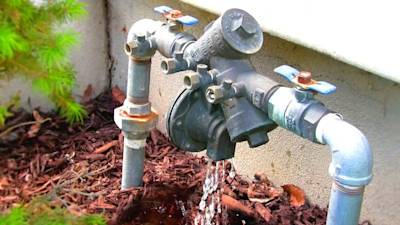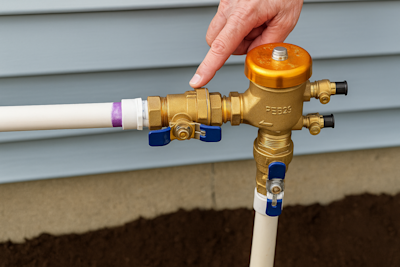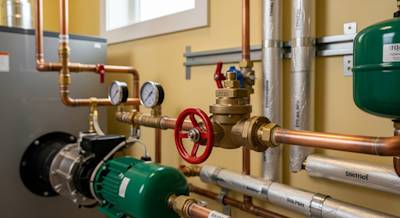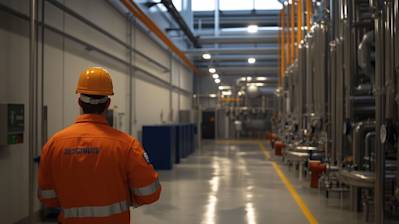Plumbing engineering is an exquisite and intricate branch of the engineering industry. It's an interconnected mesh of systems orchestrating to provide a comfortable lifestyle. When we think about plumbing, what often comes to mind is the system of pipes, valves, fittings, drains, and devices responsible for the distribution of water in a building and the disposal of waste water. But a plumbing engineer does a lot more than that. The panorama of services they offer extends to heating and cooling, gas distribution, and the design of plumbing systems for residential, commercial, and industrial buildings.
A Deeper Dive into the Plumbing Engineering World
The world of plumbing engineering is vast and incomparable in its importance. Plumbing engineers design and draft plumbing systems, including the system of water supply and waste water disposal. They hold paramount responsibilities in every sector, ranging from residential to commercial and industrial buildings. This includes hospitals, hotels, schools, shopping centers, and even high-rise buildings where the supply of clean water and the efficient disposal of waste can be particularly challenging.
Job Responsibilities of a Plumbing Engineer
A plumbing engineer's role is manifold. It does not confine itself merely to pipes or valves, but stretches out to the broad field of problem solving and system optimization. Some of the key responsibilities include:
- Designing and drafting plumbing systems.
- Specifying plumbing fixtures and appliances.
- Ensuring adherence to local and national plumbing codes.
- Collaborating with architects and other engineers on building designs.
The Prerequisites to Become a Plumbing Engineer
The path to becoming a plumbing engineer begins with proper education and training. Several steps are essential in acquiring the skills and aptitude needed for such a responsible position.
Education and Qualification Requirements
The journey starts with earning a bachelor's degree in either mechanical, civil, or environmental engineering. Some universities now offer specific degrees in plumbing engineering. Those who aspire to become plumbing engineers must have:
- A bachelor's degree in a field like civil engineering, mechanical engineering, or plumbing engineering.
- Licensure as a Professional Engineer (PE) or Engineer in Training (EIT) – depending on your location.
- In-depth understanding of local and national plumbing codes.
- Strong mathematical, problem-solving and analytical skills.
Being a plumbing engineer also requires dedication, hard work, and continuous learning, as technology and codes constantly evolve.
The Influence of Plumbing Engineers in Sustainability
With their understanding of designing efficient systems, plumbing engineers play a crucial role in promoting sustainability. They design systems that minimize water and energy usage, indirectly contributing to environmental conservation.
"Green" Plumbing System
In today's world where everyone is turning towards sustainable living, plumbing engineers are keen on designing "green" plumbing systems. These include:
- Gray water systems: Plumbing engineers play a pivotal role in designing gray water systems that reuse water from baths, sinks, washing machines, and other appliances.
- Tankless water heaters: These are more efficient as they provide hot water only when needed, thus conserving energy.
- Dual plumbing systems: These systems use reclaimed water for flushing toilets and irrigating landscapes, saving millions of gallons of potable water.
Plumbing engineers not only help us lead comfortable lives but also contribute significantly towards building a sustainable future. Their role in modern society is indispensable, making a career in plumbing engineering not only respectable but also rewarding.
Visibility of Plumbing Engineers
While plumbing engineers play significant roles in our everyday lives, their work is often not visible to the majority of people. This does not mean their job is any less important. While we might not see their work on a day-to-day basis, it is their expertise that enables the smooth functioning of our daily lives. A well-designed plumbing system ensures a steady supply of clean, potable water and safe disposal of waste - something we all can appreciate.
The Hidden Heroes of Our Buildings
Plumbing engineers truly are the hidden heroes in our buildings. They work tirelessly behind the scenes to design systems that ensure our comfort, health, and safety. Next time you turn on your tap, remember there's a plumbing engineer who made that possible.
Frequently Asked Questions About Plumbing Engineering
What Does a Plumbing Engineer Do?
Plumbing engineering involves designing and planning water systems, waste drainage, and venting systems. A plumbing engineer might work on designs of sewage systems, water treatment plants, home plumbing systems, and also systems that transport natural gas. They work with many different types of structures from residential homes to large commercial buildings.
What Is the Difference Between a Plumber and a Plumbing Engineer?
While both plumbers and plumbing engineers work with piping systems, their roles are distinctly different. A plumber is typically involved in the hands-on installation, retrofitting or repair of plumbing systems. A plumbing engineer, on the other hand, designs and plans these systems. They typically do more drawing board working as opposed to actual hands-on work.
What Kind of Training Does a Plumbing Engineer Need?
Plumbing engineers typically need a degree in mechanical engineering or a related field. They also often need to be licensed by their state, which requires passing an examination. Relevant work experience, especially in construction or design, can also be valuable.
What Role Does a Plumbing Engineer Play in Construction?
During construction, the role of a plumbing engineer is to design the building's water systems (including hot and cold water), waste systems, and venting systems. Planning these in a safe, functional, and cost-effective way is crucial. Plumbing engineers must consider many aspects such as water pressure requirements, gravity, and the building’s layout to ensure proper function of the systems.
How Does a Plumbing Engineer Ensure Water Conservation?
Water conservation is one of the key objectives in the role of a plumbing engineer. By selecting appropriate fixtures, specifying low-flow technologies, and designing efficient system layouts, a plumbing engineer can significantly decrease a building's water usage. They may also design recycling systems that reuse greywater from showers and sinks.
What Software Tools Do Plumbing Engineers Use?
Plumbing engineers often work with Computer Aided Design and Drafting (CADD) software to create detailed blueprints of plumbing systems. They may also use hydraulic modelling software to understand how water and waste will move through the systems they design. Software tools can differ depending upon the engineer's specific needs and field of specialization.
Can A Plumbing Engineer Work on the Heating Systems?
Yes, indeed. A plumbing engineer can design and work on building heating systems. They may design radiant floor heating, snow melting systems, ground-source heat pumps and other innovative and efficient heating systems. Given their basic engineering background and specific expertise in fluid systems, they are well-equipped to undertake these tasks.
What Are the Career Opportunities for Plumbing Engineer?
Plumbing engineering can lead to a wide range of career opportunities. In addition to working in traditional architecture and construction firms, plumbing engineers may also be employed by public utilities, environmental agencies, and plumbing equipment manufacturers. Some engineers also choose to work as a consultant, lending their expertise to a multitude of diverse projects.
Pros and Cons of Being a Plumbing Engineer
Pros of Being a Plumbing Engineer
Job Stability
- As a plumbing engineer, your job is essentially recession-proof. No matter the state of the economy, people and businesses will always need plumbing services. This leads to a degree of job stability that few other professions can offer.
High Demand
- The demand for experienced and competent plumbing engineers is consistently high. Both residential and commercial sectors will require plumbing engineers to carry out installation and maintenance, ensuring a steady flow of work.
Good Income
- Plumbing engineers typically earn significantly above the national average wage. The pay scale tends to increase with experience and specialization, and there can also be opportunities to earn extra through overtime or emergency work.
Opportunity for Entrepreneurship
- Once a plumbing engineer has enough experience and has built up a client base, they can consider starting their own business. This opens up the possibility for even greater earnings and more control over work-life balance.
Variety of Work
- Being a plumbing engineer means you can work on a varied range of projects. One day you can be working on a residential project, the next day a commercial one. This variety can make the job more interesting and challenging.
Cons of Being a Plumbing Engineer
Physically Demanding
- The work of a plumbing engineer can be quite physically demanding. It often involves heavy lifting, working in cramped spaces, and long periods of standing or kneeling. This can lead to health issues, like back problems or knee injuries, over time.
Working Conditions
- Plumbing engineers often have to work in conditions that can be uncomfortable or even hazardous. They may have to work in extreme weather conditions, deal with raw sewage, or navigate tight and cramped spaces.
Unpredictable Hours
- While you can often set your own hours as a plumbing engineer, the nature of the work means that you may need to be on-call for emergencies. This can lead to working evenings, weekends, or even holiday periods.
Potential for High Stress
- Dealing with plumbing emergencies can be stressful, especially if you are the business owner. On top of dealing with the physical demands of the job, plumbing engineers have to manage time pressures and unforeseen complications that can cause stress.
Continuous Learning
- Although continuous learning and self-improvement can be viewed as a positive aspect, it can also be a con for some individuals. Plumbing engineers have to stay updated with the new tools, techniques, and technologies in order to remain competitive in the industry.
Summary
When you encounter any problem with your plumbing system, a plumbing engineer can provide effective and efficient solutions. With their in-depth knowledge and understanding of the complex plumbing network, these professionals ensure that every aspect runs smoothly. Not only can a plumbing engineer fix leaks and blockages, but they can also identify potential problems that could lead to serious damage and costly repairs in the future.
A plumbing engineer’s role extends beyond solving common household problems. Their crucial role in designing and implementing plumbing systems in new buildings cannot be overlooked. Therefore, the expertise of a plumbing engineer is essential from the planning stages to the completion of construction projects. Efficient plumbing systems designed by these professionals can greatly enhance the longevity and functionality of buildings.
Choosing to pursue a career as a plumbing engineer could be quite rewarding. If you're intrigued by problem-solving and have a knack for practical applications of scientific principles, being a plumbing engineer might fit you perfectly. It's a profession that provides the perfect balance between desk work and hands-on tasks, keeping you on your toes while letting you make the world a better place, one pipe at a time.
About KYPD Plumbing
Welcome to KYPD Plumbing, your trusted solution for all your plumbing needs in Nicholasville, KY! For us, no job is too big or too small. Whether it's a simple fix or a complex installation, we pride ourselves on delivering top-notch services with the utmost professionalism. We understand that you have no time for plumbing mishaps, and that's why our team is driven to ensuring every pipe flows smoothly in your space. We aim to make your life easier while upholding the highest quality standards every step of the way. At KYPD Plumbing, you're not just another customer - you are part of our community, and your satisfaction is our success!
Tags: plumbing engineer, plumbing systems, engineer role,




